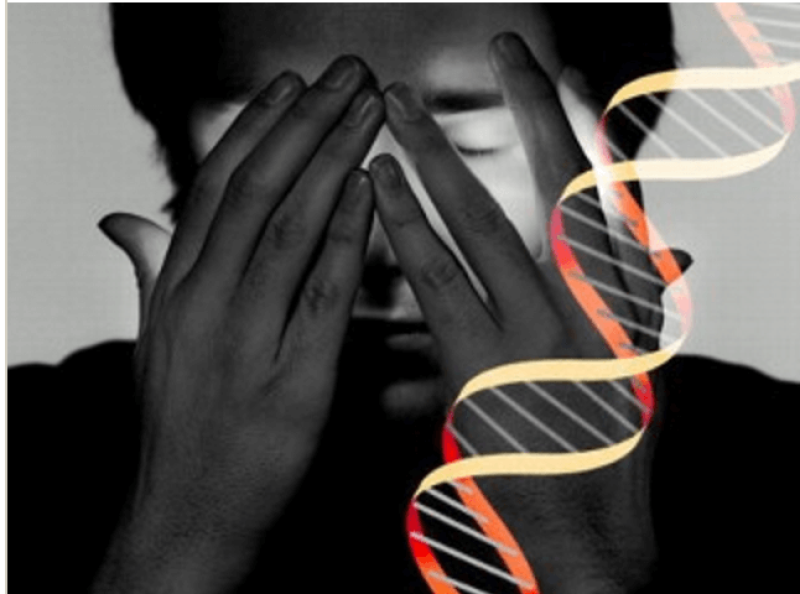It’s very likely that you know several people who suffer from depression, and it’s even quite likely that you experience it yourself. Its incidence in the population at any given time is about 7.6 percent, with about 8 – 12 percent of men and 20-26 percent of women likely to experience it over a lifetime. Depression is more prevalent than anxiety disorder, cancer, and even diabetes. It is the second leading cause of disability worldwide.
According to the Centers for Disease Control and Prevention, 11 percent of Americans over 12 years old are on anti-depressants. Prescriptions for medications like Zoloft, Prozac and Lexapro, which are all believed to work by increasing the amount of the neurotransmitter serotonin, have soared in the past three decades—400 percent since 1988. Yet, the drugs aren’t perfect, while effective for many people they don’t always help and can often bring a number of unwanted side effects.
The high prevalence of depression and the dearth of quality medications has many hopeful that a more evolved understanding of the role of genes in depression might lead to more effective drugs or other therapies.
Is depression a ‘First-World’ problem?
People sometimes refer to issues that are not immediate survival concerns by the euphemism ‘First-World problems,’ because they are occurrences that tend to exhibit themselves in industrialized nations where more basic survival stressors (food, water, shelter) are not typical concerns. As Prozac Nation elucidated, the U.S. has been a hotbed for psychotherapy, antidepressant prescriptions, and anxiety disorders. Are these symptoms of an advanced nation suffered by people without ‘real’ survival woes? Not likely. Mental disorders are not uncommon across all studied nations, demographics, and races.
Furthermore, antidepressant prescriptions are brisk in every country where they are licensed and marketed. It’s part of the human condition, and where we don’t have good data, there’s no reason to consider that its prevalence is any different from where we do have data. We know that even animals suffer from depression, and the extent to which and prevalence across species is unknown only because we haven’t done the research, not because we presume it doesn’t exist. This is part and parcel of having tremendously complex brains within the animal kingdom, and various adaptive mechanisms for learning, empathy, problem-solving, etc. Things don’t go as we always would like them or want them, and to this our brains ruminate in the ‘what-could-have-been.’
When a disease is like a car
Why we can’t pinpoint a precise locus of ‘depression’ is because a precise locus likely doesn’t exist. It’s a tremendously complex disorder (just as ‘tremendously complex’ as the organ it derives from). So why the subtitle of this section? A car that fails to run properly or loses fuel economy can do so because of an innumerable number of factors—the fuel filter, water in the gas line, clogged air filter, tire inflation pressure, transmission friction, ambient temperature, etc.
Ultimately, the top-level effect is that it doesn’t drive well or is losing fuel efficiency. When our brains (with literally hundreds of billions more connections to their outputs than an automobile) don’t work properly, it can similarly have countless precipitating effects. Depression is how a tremendously complex arrangement of neuronal connections ultimately responds at a very high level.
While there are some gene variants that seem heritable and are associated with increased predisposition to depression, there hasn’t been equivalent elucidation of ‘master genes’ for depression, as have been found for alcoholism and other addictive behaviors.
But again, much of this is due to the fact that depression can take many forms and be associated with a huge number of catalysts. In fact, genetic investigation of depression has revealed that about 40 percent of the variance is explained by genes, with the remaining 60 percent due to non-shared environmental factors (“nurture”). These gene-by-environment factors could point to epigenetics as being strongly related to some forms of the myriad possibilities of depression.
Ben Locwin, PhD, MBA, MS, is a contributor to the Genetic Literacy Project and is an author of a wide variety of scientific articles in books and magazines. He has been featured by the Associated Press, the Wall Street Journal, and is an expert contact for the American Association of Pharmaceutical Scientists (AAPS), and a committee member for the American Statistical Association (ASA). He consults for many industries including biological sciences, pharmaceutical, psychological, and academic. Follow him at @BenLocwin.































